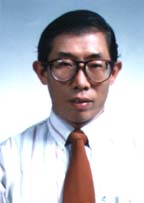Submitted by zhenliang on

An excerpt from ( pg 5 ) ' A Discourse in Buddhism '
Soul, Self or Atman is believed to be a permanent everlasting and absolute entity in Man. After death, the soul lives forever in hell or heaven, its destiny depends on the judgement of God.
According to others, the soul goes through many lives until it purifies itself completely ahnd finally it is united with God or Brahman, Universal Soul, or Atman from which it originally came from.
In Buddhism, the idea of self is wrong view. It is an imaginary, false belief, and it produces harmful thoughts of ‘mine’ and ‘me’, selfish desire, craving, attachment, hatred, ill-will, conceit, pride, egoism and other defilements, impurities and problems. It is the source of all the troubles in the world and personal conflicts to global law.
Man has created God on whom he depends on for his own protection, safety and security. This God and Soul are man made. Against the current Patisotagami, the Buddha himself said that his teaching was against it. The Doctrine of Anatta or No Soul is the natural result of the Five Aggrates and the teaching of Depending Organization (Paticca Samuppada. When we analyse these five aggregates there is nothing behind them which can be taken as “I”, Atman or Self.
The Buddhist Theory or relativity is the Doctrine of Dependent Origination which is the synthetical method. The principle is as follows:
When this is, that is:
This arising, that arises.
When this is not, that is not:
This ceasing, that ceases.
The principle of conditionality, relatively, and interdependence explains the whole existence and continuity of life and its cessation. There is no self in these five aggregates or outside them.
All conditioned things are impermanent.
All conditioned things are dukka.
All Dhamma are withoutself.
The first two lines denote the five aggregates are conditioned interdependent both physical and mental. The third said: “All Dhamma are without self,: denotes that it covers both conditionedas well as non-conditioned things, the Absolute, Nirvana
According to the Buddha’s teaching, it is wrong to say, “I have no-self: or to say, “I have self,” because both are fetters, both arising out of the false idea, “I am”.
The Buddha said, “Physical form is transient (anicca) and whatever is transient is unsatisfactory (dukka). Whatever is unsatisfactory, that is, anatta, non-self, and whatever is non-self that is, not of me, that I am not, that is not myself.” All the five aggregates are devoid of a self. Above all, everything is soulless for we never possess it quite surely and never control it completely. The so called being is composed of the five aggregates, nothing remains.
Simon Leong
The author has written several books on the subject of Buddhism and Yoga, and is currently looking for sponsors to help publish his books. If you would like to be a sponsor, please call Bro. Hong Yew Chye at (6)04-6414822 Ext: 2003 or email ychong@thanhsiang.org
--------------------------------------------------------------------------------
About the Author
A Malaysian poet Simon Leong is a Charter Lifetime member of the International Society of Poets. In November 1, 1996 he was elected into the International Poetry Hall of Fame, Owing Hills, MD, on the Internet World Wide Web, which will be on permanent display in the Museum as the premier showcase for poetic talents ( http://www.poets.com/SimonLeong.html ) & included in the Listing of Asian-American Poets: Choy-Yin Leong, Simon birth 1938: //www.rothpoem.com/listasia.html
He received a Decree of International Letters of Cultural Achievement, LFABI, USA. He said, “ A poet is a person who has accepted the study of poetry to a certain degree with passion and insight not only as a writer but also a reader. A retired Stanchart banker, he holds Diplomas in Sales Management, Marketing Analysis and Accounting besides Freelance Journalism and English. He is a free scholar of the International Buddhist University, Thailand and earned his Bachelor of Arts first degree in 2002.
“A Discourse in Buddhism,” this book attempts to satisfy the needs of the student who is preparing for the examination at the Diploma level, or who wishes to deepen his knowledge on Buddhism even though he may not be taking an examination. His writings include, “As I See the World Today” published by Vantage Press, NY, 1994; “We are the World”, 1997, and “Save Our World”,2000 both are by Windsor Associates, CA, USA.

